Iran FM Says US 'Directly Responsible' For Delay In Nuclear Deal
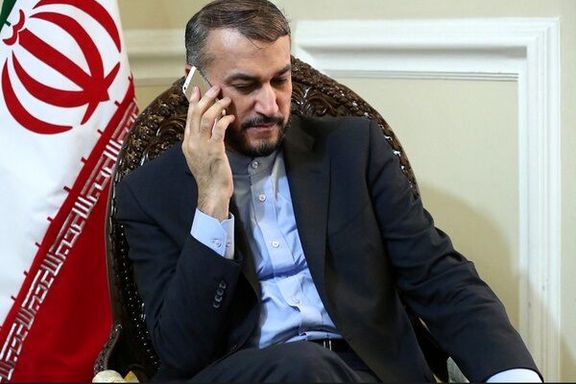
Washington is directly responsible for the delay in reaching a nuclear deal, Iran’s foreign minister told his Omani counterpart in a conversation late on Sunday.

Washington is directly responsible for the delay in reaching a nuclear deal, Iran’s foreign minister told his Omani counterpart in a conversation late on Sunday.
Sayyid Badr Albusaidi, Oman’s foreign minister and Hossein Amir-Abdollahian discussed regional developments in a phone call, including a ceasefire that went into effect in Yemen on Saturday and nuclear talks between Iran and the United States, the government news website IRNA reported.
Officials of Muslim countries have been making calls on Sunday, on the occasion of Ramadan that started on Saturday in many Sunni countries and on Sunday in Iran.
Amir-Abdollahian criticized recent sanctions imposed by the US on some Iranian persons and companies, saying that Tehran is ready for a “good and lasting” agreement but the “American side has some maximalist demands and is directly responsible for the prolongation of the [nuclear] talks.”
Washington sanctioned an Iran-based network on March 30 for its role in procurements boosting Iran’s ballistic missile program, seen by many regional countries and the United States as a threat.
Although nearly one year of negotiations in Vienna were said to have reached its final stage, Tehran has demanded that the US remove its Revolutionary Guard from its list of ‘foreign terrorist organizations’. The Biden administration has apparently not made a decision yet, amid rising opposition by Republicans and some Democrats in Congress.
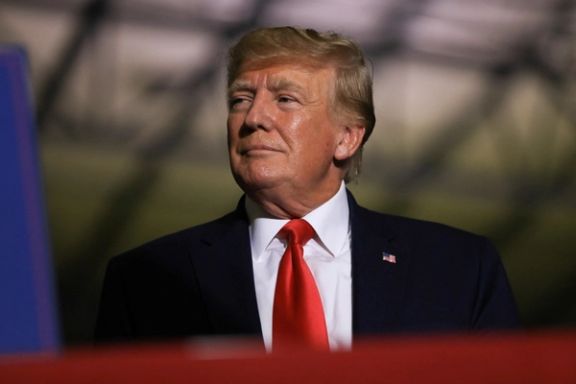
Former President Donald Trump has criticized the Biden administration for allowing Russia and China to negotiate on behalf of the United States to revive the 2015 Iran deal.
Addressing a crowd of his supporters in Washington Township, Michigan, on Saturday, Trump said Biden is not even reviewing the new nuclear deal and has let Russia and China to lead the Vienna talks, calling it “stupid”.
"So, we have Russia negotiating the deal – with China as a backup – how stupid is this country. They are so stupid”, he said, adding that “the deal is turning out to be a disaster. Nobody can even believe it. But we're giving everything away – all the things that we fought for with Iran."
Trump, who in 2018 withdrew from the Obama-era deal -- officially known as the Joint Comprehensive Plan of Action (JCPOA) -- and imposed ‘maximum pressure’ sanctions, added that his administration would have made a new agreement. "Within one week after we took office, they would have made a deal. They were so ready to make a deal."
He slammed Biden’s policy toward Iran, saying, “We had all the cards. We still have cards – if they knew how to play them, they still have cards”.
Most of the Republicans and former administration officials denounce Biden’s policies regarding the Middle East and particularly Iran, however, Biden’s administration says Trump’s decision to abandon the JCPOA led Iran to intensify its nuclear program and aggressive actions in the region.
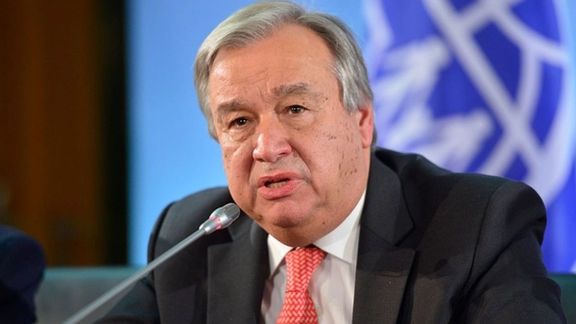
UN Secretary General Antonio Guterres called Iran’s Foreign Minister Hossein Amir-Abdollahian to congratulate Yemen’s ceasefire and discuss talks to revive the 2015 nuclear deal.
Guterres was quoted by the government news website IRNA as saying that the two-month ceasefire announced for Yemen on Friday “a mutual success”, achieved through efforts by all involved parties.
Amir-Abdollahian in turn thanked Guterres for his role and insisted that now is the time to take “fundamental steps” toward peace and stability in Yemen, specially removing sanctions that impact humanitarian aid.
Referring to a Security Council resolution condemning aggression by the Houthi rebels, Iran’s foreign minister expressed his disappointment. Tehran has been supporting the Houthis who have been fighting Yemen’s legitimate government and a coalition led by Saudi Arabia that has intervened in Yemen since 2015.
Speaking about nuclear negotiations with world powers in Vienna, Amir-Abdollahian told Guterres that “we are close to an agreement and have submitted our proposals over remaining issues through the European Union’s negotiator to the American side and now the ball is in their court.”
After one year of indirect negotiations with Washington, Tehran’s last major demand is for the US to remove the Revolutionary Guard from its foreign terrorist list. The Biden administration has not made a decision yet on the issue as opposition to such a move has been gaining ground among American lawmakers.
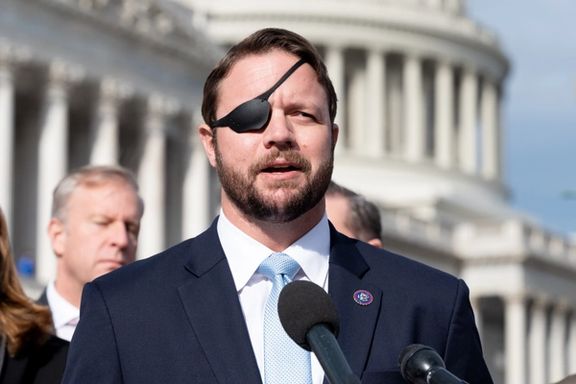
Dan Crenshaw, a Republican Congressman, said Iran understands only power and leverage, and the Biden administration was not acting rationally.
Crenshaw told Iran International Friday that the 2015 Iran deal, from which Republican president Donald Trump withdrew the United States in 2018, “was a danger to the Middle East stability.”
In opposing talks in Vienna between Iran and world powers to revive the deal, Crenshaw, an Afghanistan war veteran and a SEAL force commander, said the Biden administration should not be “engaged in negotiations when Iran is sending missiles into Iraq near our consulate.” Iran March 13 fired missiles at Erbil, northern Iraq, hitting a villa it claimed was used by Israeli intelligence, apparently in response to Israeli attacks on an Iranian air base in Kermanshah province or on Iranian forces in Syria.
Missiles
Crenshaw said that Iran’s Revolutionary Guards (IRGC) accepting responsibility for the missiles had been “bold and brazen,” and that the US was projecting weakness “over and over again.” This was the “worst way to negotiate,” he argued.
Earlier in the day, the Democratic Majority Leader in the House of Representatives Steny Hoyer told Iran International’s Arash Alaei that President Joe Biden saw limiting Iran’s nuclear program, as done by the 2015 deal, as “a critically important objective” and that Washington would continue negotiations with Iran and other world powers as long as agreement was possible.
The Vienna talks over reviving the 2015 deal − the JCPOA (Joint Comprehensive Plan of Action) – have gone on for a year, struggling to resolve which US sanctions contravene the agreement and exactly how Iran’s nuclear program, expanded since 2019, be returned to JCPOA limits. Among issues reportedly remaining, the US is refusing to rescind Trump’s 2019 move adding the IRGC to the US list of ‘foreign terrorist organizations,’ the only example of a sovereign state’s armed forces being so designated.
In a Friday statement, US National Security Advisor Jake Sullivan defended this week’s new US sanctions against Iran’s procurement effortsfor its missile program. “We will continue to use all appropriate authorities to hold Iran and its proxy groups accountable for threats against our friends and partners,” he said.
Yemen’s Ansar Allah, known as the Houthis, have in recent weeks, accelerated efforts to hit Saudi energy targets in response to the Saudi war effort in Yemen. Ansar Allah, who control most of northern Yemen, have developed a missile capacity, reportedly with Iranian help, over many years although the damage caused by the strikes is limited given Saudi air defenses.
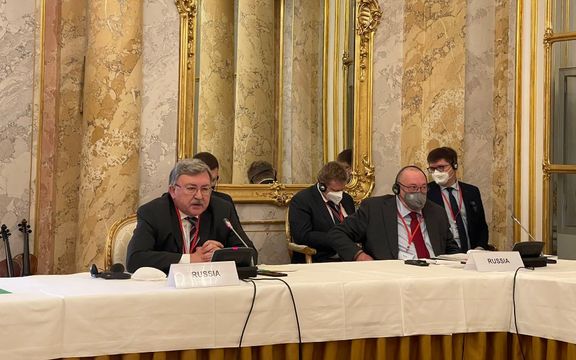
Political commentator Diako Hosseini in Tehran says Russia supports the revival of the 2015 nuclear deal but wants tensions to continue between Iran and the West.
Speaking to Rouydad24 website, Hosseini said that when Russians look at the bigger picture, they see Iran as part of their geopolitical map. Just like the Americans, Russians too have shown that they do not wish to see Iran becoming a nuclear power. They are sensitive to this matter and will always obstruct Iran's path to nuclear bombs. But at the same time, a nuclear agreement should not mean Iran getting too close to the West.
While Moscow was playing an active mediation role between Tehran and Washington during the Vienna talks in recent months, after the invasion of Ukraine it made demands that were seen as a stumbling block to an agreement. Russia asked for written guarantees from the US that Western sanctions over its invasion of Ukraine would not affect its ties with Iran.
Hosseini said, it is natural that the Russians follow their own interests in the talks. With the Ukraine war, their interests have become even more complicated. "Russians know that if the nuclear deal is not revived, tensions between Tehran and the West will increase to the point of a war. If there is such a war, it will be difficult for Moscow to support any side or even to declare impartiality."

For the time being, Russia's interests overlap with Iran's interests but in case there is an agreement, Russia will be worried that Iran might get too close to the West. The best-case scenario for Russia is continued tensions between Iran and the West, Hosseini argued.
According to the website, the Vienna talks have reached a difficult point where there is little chance for progress. The website quoted Hosseini as defending Tehran’s position that all post-2018 sanctions are about the nuclear issue. If the 2015 nuclear agreement, JCPOA, is to be revived, all sanctions including those against the IRGC need to be lifted.
He added that some recent remarks by Iran’s Foreign Minister Hossein Amir-Abdollahian indicate that Iran might compromise over the IRGC issue. He was referring to Amir-Abdollahian’s statement last week that IRGC commanders told him to prioritize Iran's interests over the interests of the Revolutionary Guard.
Meanwhile, in an interview with Fararu website, former lawmaker Heshmatollah Falahatpisheh said that both Iran and the United States need an agreement to prevent rising tensions in the region andthe world.
He said an agreement is at hand and its final draft has been prepared but matters beyond the nuclear agreement prevent a final deal to be made. Last week Iranian Supreme Leader Ali Khamenei's adviser Kamal Kharrazi once again called for guarantees from America, lifting of all sanctions, and delisting the IRGC as requirements for a deal. This comes while several Iranian lawmakers including Ali Khezri claim they have seen a 27-page final draft of an agreement between Iran and the United States.
Falahatpishe, the former chairman of Iranian parliaments national security and foreign policy Committee said it is not known if Russia still insists on its own demands about the nuclear deal.
Nonetheless, he said that only delisting the IRGC can lead to a détente between Iran and the West. Falahatpisheh maintained that both countries should try to reduce tensions in the region as any delay will give an opportunity to “agitators such as Israel” and some “regional reactionaries” to bring about chaos in the region.
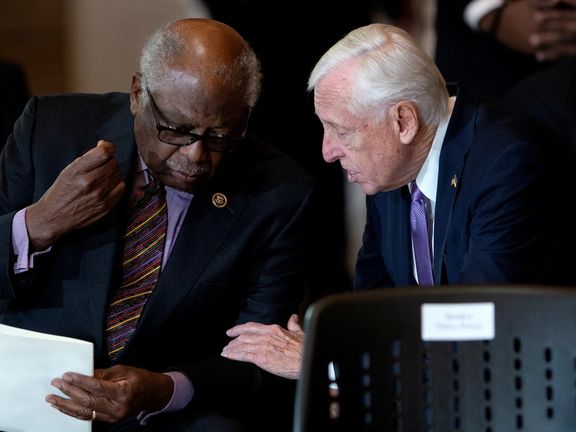
The Biden administration will continue talks with Iran for as long as they think a deal is possible, Rep. Steny Hoyer (D-Md.) told Iran International Friday.
The Democratic Majority Leader in the House of Representatives added, “They believe this way, and the president is articulating that limiting the capacity of Iran producing nuclear weapon is a critically important objective. So, I think they would continue the talks as long as they think it's a possibility to get to an agreement.”
President Joe Biden launched indirect talks with Iran and other world powers one year ago to revive the 2015 nuclear agreement, abandoned by his predecessor in 2018. The talks have neared a conclusion, diplomats have said, but some sensitive issues remain to be agreed.
The key issue is Iran’s insistence that the United States should remove its Revolutionary Guard from its Foreign Terrorist Organization list. The Biden administration has not said whether it would reach a compromise with Tehran, but many politicians from both parties oppose such a move.
“IRGC is a terrorist organization. And I'm for continuing it being designated as a terrorist organization. I'm also in favor of dealing in this agreement with the non-nuclear malign activity pursued by the Iranians to destabilize the Middle East,” Hoyer told Iran International's Arash Aalaei.